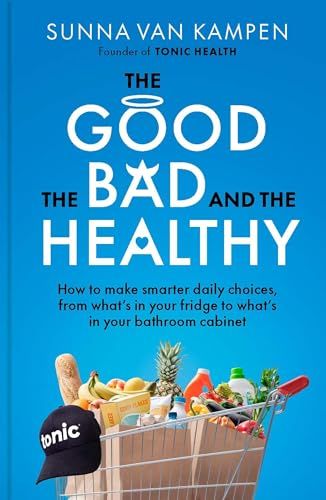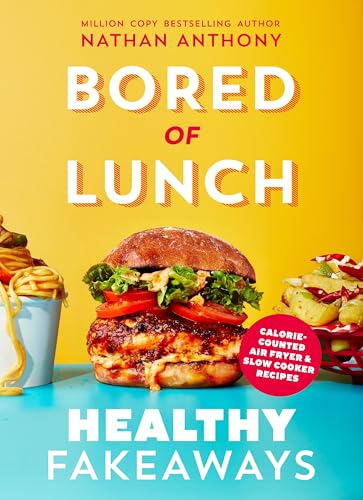There are two golden rules for a healthy diet: eat the quantity of food appropriate for your level of activity, and eat a variation of foods to ensure that you have a balanced diet.
The healthy eating tips below are practical ways to help you make healthier diet choices.
1. Eat plenty of fresh or tinned fruit and vegetables
Many people know they should be eating more fruit and vegetables, yet this doesn’t mean they are doing so. Fruit and veg contain a huge variety of essential vitamins and minerals, and are an excellent source of fibre.
They carry many health benefits, and reduce your risk of conditions such as heart disease, some cancers, and stroke.
It is important for a healthy diet to have a minimum of five portions of a variety of fruit and veg daily, and it can be a lot easier than you think. For example, it is possible to have:
- Breakfast: fruit juice, with your cereal - you can even cut some fresh fruit into the cereal
- Lunch: a side salad
- Afternoon snack: a banana
- Dinner: peas or broccoli
Fruit and veg can be fresh, tinned, frozen, juiced or dried. Do not forget that potatoes are starchy foods, and do not count here as fruit and veg.
2. Try to eat more fish
It is important to eat more fish, at least a portion extra on a weekly basis. Fish is a fantastic source of protein, as well as essential vitamins and minerals.
If possible, aim to have two portions of fish weekly, ensuring at least one of which is oily. You can select from canned, fresh or frozen fish, but be aware that smoked fish is often high in salt.
Oily fish
Specific fish is known as oily fish, as they are full of particular kinds of fats which are known as omega-3 fatty acids, excellent for a healthy heart and a healthy diet.
Examples of oily fish include:
- Trout
- Salmon
- Herring
- Mackerel
- Sardines
- Fresh tuna
- Eel
- Pilchards
Examples of white or non-oily fish include:
- Haddock
- Cod
- Coley
- Plaice
- Tinned tuna
- Hake
- Skate
What quantity of oily fish should I have?
Women who would like to conceive at some point in the future ought to have a maximum of two portions of oily fish per week (one portion being 140g). For other adults, the maximum recommended number of portions is four per week.
For marlin, shark and swordfish, it is advisable to have just one portion of these fish per week due to the high levels of mercury these fish contain. For those who eat a lot of fish, it is sensible to vary your diet and eat as many different types of fish as possible.
3. Prepare your own meals
If you prepare the vast majority of your meals, then you will generally always know exactly what you are eating, and this makes it easier to keep track of quantities of calories, salt, fat, carbs, protein and more.
You could cook your meals on a Sunday, then store them in containers in the fridge or freezer, having them whenever you want throughout the week. This also means that you don’t always need to cook dinner after work, you can just reheat your pre-made meals. Simply being too tired after work can often result in poor dietary choices, such as having pizza and chips, due to the ease and speed in which they can be cooked.
Preparing your own food also brings the added bonus of typically being cheaper than buying pre-prepared meals. Not only could you eat healthier, but you could save money in the process, a win-win situation.
4. Reduce your intake of sugar
The majority of us are eating more sugar than we should, which can have damaging effects on our health. Over consumption of sugar is strongly linked to obesity, a significant risk factor in developing type 2 diabetes.
It is crucial for us all to reduce our consumption of foods which contain added sugar, such as biscuits, cakes and sweets, as well as decreasing the number of fizzy drinks and sugary soft drinks that we consume.
Sugary drinks and foods can also lead to tooth decay. Lots of foods high in sugar contain a lot of calories, hence by cutting down you can ensure weight control. Sugar contains very few nutrients, and therefore is generally seen as being ‘empty’ calories.
How to tell if a food is high in added sugar
Read the label. Don't expect it to just say sugar. Other words are often used for added sugars, like glucose, sucrose, maltose, fructose, invert sugar, hydrolysed sugar, honey or corn syrup.
An additional way to work out how much sugar a food contains is to look for the 'Carbohydrates (of which sugars)' figure on the label.
However, this figure is not able to inform you as to how many carbohydrates are due to added sugars, which is what we need to reduce our intake of.
- High Sugar Content is greater than 15g of sugars per 100g
- Low Sugar Content is 5g of sugars or less per 100g
Should the amount of sugars per 100g be between the above figures, then that is a medium level of sugar.
Of note is of course the fact that the amount you eat of a certain food affects the amount of sugar you will obtain from it, so be mindful about portion sizes. Also, check the label carefully to see if the figures are only for half of the packet, for example, rather than the entire product.
5. Choose unsaturated fats over saturated fats
The government and NHS have advocated reducing our consumption of fat, but there has been a rising interest in low-carb, high-fat diets - which focus on ‘healthy’ fats - with increasing amounts of evidence showing these diets may in fact be the way forward, especially for those with certain metabolic conditions such as type 2 diabetes.
Polyunsaturated and monounsaturated fats are forms of unsaturated fats. They help maintain levels of HDL (‘good’) cholesterol while lowering levels of LDL (‘bad’) cholesterol, and are best to include instead of saturated fats. Products they are found in include olive oil, avocados, certain nuts and rapeseed oil.
Saturated fats are generally found in red meat, creams, biscuits, cakes, pastries and cheese. Saturated fats raise levels of LDL cholesterol and lower levels of HDL cholesterol, which is associated with fatty deposits building up in the arteries and restricting blood flow. This can increase the risk of developing heart disease, stroke, and other health conditions.
6. Do not eat more than six grams of salt per day
Lots of us think that we do not eat a lot of salt, particularly if we do not add any extra salt to our food. However, that is not the whole truth about the salt intake in our diet.
On a daily basis in the UK, the majority of men and women consume too much salt. Adults, as well as children aged above 11, ought to have no more than 6g salt a day. Younger children ought to have less than 6 of salt.
A frightening fact is that most of the salt we consume in our daily diet is already in the food we purchase, like breakfast cereals, sauces, soups and ready meals. It is therefore very easy to eat too much salt without knowing you are doing so, because you haven’t added it in yourself.
Consuming too much salt can increase your blood pressure. Should you have high blood pressure you are three times more likely to develop heart disease, or have a stroke, compared to those with normal blood pressure.
Working out the salt content of food
Check the label on foods to find out the figure for salt per 100g.
- High Salt is more than 1.5g salt per 100g (or 0.6g sodium)
- Low Salt is 0.3g salt or less per 100g (or 0.1g sodium)
Should the amount of salt per 100g be between these figures, then that is said to be a medium level of salt.
Of note is that the amount you consume of a particular food affects the amount of salt you will obtain from it, so be mindful about portion sizes.
7. Exercise regularly for a healthy weight
Many people fail to take part in regular exercise, which is crucial to maintaining a healthy weight, along with a balanced diet.
Exercise is a great way of burning those extra calories and controlling your weight. You do not have to join a gym should you be interested in weight loss either, just try to do a little more exercise each day and build as much walking as possible into your daily routine.
When we eat more calories than our body burns each day, we put on weight. This happens because surplus energy is stored as fat when it isn’t used up during exercise.
It is not healthy to be underweight or overweight. Being overweight is considered to be more serious, as you can end up with diseases like heart disease, type 2 diabetes or high blood pressure.
Being underweight can still have its own impact on your health, however, and should not be ignored or underestimated.
You can check whether your weight is correct for your height by calculating your BMI. Should you be at all concerned about your weight, get some advice from your GP or a dietician. As well as dietary advice, they may provide you with an exercise plan to follow.
Healthy weight loss is about 0.5 to 1kg (1 to 2lbs) per week.
8. Drink plenty of water
It is recommended to drink approximately eight glasses of water - or other similarly healthy fluids such as low-fat milk, tea and coffee - each day to ensure we do not get dehydrated.
If it’s a hot day, or you are exercising, then you ought to increase the amount you drink, to replace fluids lost through sweating.
Avoid drinking fizzy and soft drinks however, because they are high in added sugar, which can lead to obesity and tooth decay.
9. Reduce the amount of alcohol you drink
The occasional alcoholic drink will not pile on the calories. However, as alcohol is rather high in calories, by cutting down on your overall intake you can ensure weight loss.
At the time of writing, the guidelines for alcohol consumption are that men and women should not drink more than 14 units a week. This equates to six 175ml glasses of wine, or six pints of lager, a week.
One unit equates to half a pint of standard strength beer, cider or lager, or a pub measure of spirit. A glass of wine equates to two units.
If you choose to drink alcohol, to maintain good health it is sensible to spread your drinking over the week, and not binge drink. You can damage your liver by drinking heavily over a long period of time.
10. Do not skip breakfast
Having a hearty, filling breakfast gives you the energy needed for the day ahead, as well as a portion of the vitamins and minerals necessary for good health.
Many people skip breakfast because they “don’t have time”, and think it can assist in weight loss. However, this is a myth. Skipping meals does not assist weight loss and is not healthy as we fail to consume essential nutrients.
Eating breakfast can actually help with weight control and weight loss, as you are significantly less likely to feel hungry later in the day and eat unhealthy snacks.
So remember to have that bowl of berries or whole grain cereal, and a glass of water, to ensure that healthy start to the day.
Bestselling Healthy Eating Books











